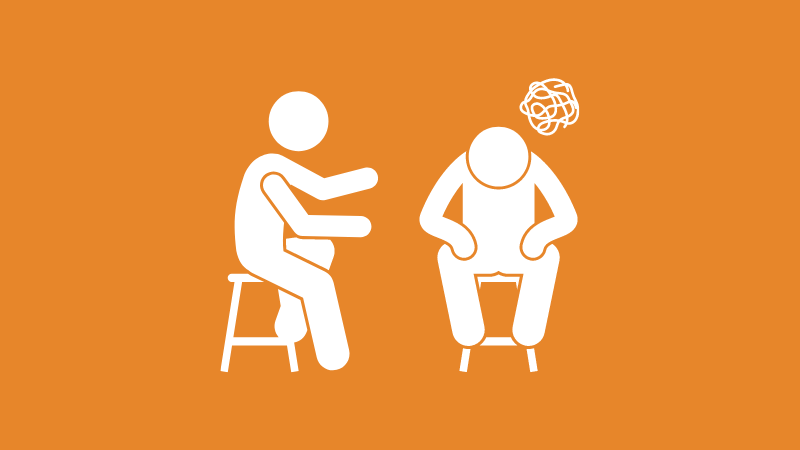Table of Contents
Affiliate link notice: As an affiliate of BetterHelp and other third-party vendors, We will receive compensation if you make a purchase using the links provided on this page. For more information, visit our disclosure page.
Last Updated on April 3, 2023 by Randy Withers, LCMHC
We all want our children to grow up to be highly intelligent.
However, one of the most important skills they can develop during childhood is how to embrace and understand their emotions.
Emotionally intelligent kids are not just smart. They are smart about feelings, both theirs and other people’s.
As adults, many of us still struggle to manage our emotions in a healthy way.
We deal with issues like anger, anxiety, or depression. Many of us never learned how to be emotionally intelligent kids, so we carried that deficit into adulthood.
The good news is your children don’t have to suffer the same fate. You can help your child develop emotional intelligence early, so they’ll have an easier time managing it later.

1. Listen to them and accept them for who they are.
It all starts with you.
Your kids will thrive emotionally, mentally, and physically if they know you accept them for who they are. You love them unconditionally, but they need to know that.
Even when they make mistakes, you need to be there to support them, which will give them the self confidence they need to move on and learn from it.
It’s equally important to listen to them when they want to share their emotions with you.
Praise them for sharing them in an acceptable way like talking to you instead of throwing a fit. Acknowledge how they feel and give them suggestions for how to cope with those feelings.
Just like you enjoy having friends at your side when you need to vent, it’s valuable for a child to have someone they know they can trust when they need an outlet.
2. Teach them how to cope.
After you listen and accept, it’s important to help them cope with their emotions. Emotions are raw and overwhelming. Your child won’t quite know how to handle them yet, and they need your experience to help them.
Once they learn to recognize and express their emotions in a healthy way, they can begin to deal with them. Different techniques will work for different children, so encourage them to explore some options like:
- Listening to soothing music to recuperate
- Doing deep breathing exercises to calm down
- Coloring in a coloring book to relieve stress
- Putting on lotions or essential oils with lavender to relax
- Cuddling with a lovey and resting for a few minutes
3. Get physical.
There are a couple of ways to tackle this suggestion.
It’s incredibly important to emphasize your child’s physical health. Being in healthy physical condition can also support emotional and mental support. Make sure your child gets enough physical exercise every day and eats a balanced diet.
Offer them great places to play both inside and outside. Setting up a playroom with all of their toys will give them a great place to explore on their own or with you. You can also give them an outdoor space with playhouses or playsets.
A lack of physical activity is much less likely to be a problem for younger children because their metabolism is so high and they have so much energy. As your child gets older, it will be more important that you encourage extra activity throughout the day.
However, getting your child involved in sports, especially team sports, can help develop and strengthen their emotional intelligence. There’s really no nice way to say this, but they’re going to lose. It happens.
How they react to that loss is the important thing to focus on. They need to learn to accept their losses, congratulate the winner, and move on.
There’s nothing wrong with continuing to practice and improve so they don’t lose again, but they won’t always be the best at everything, and it’s better to learn that now.

4. Be consistent.
Discipline is never fun, but it’s important that you’re consistent in setting boundaries and offering appropriate consequences when those boundaries are crossed. Your child will develop a sense of right and wrong, which goes a long way for strengthening their emotional intelligence.
They need to know now what’s considered unacceptable behavior before they harm themselves or others. Understanding what harms others and being able to set those personal limits will establish honesty and trust.
5. Learn different perspectives.
Broadening your child’s horizons by exploring differences of opinion, religion, or culture can help your child develop empathy and understanding for others. It can also help them to think more openly about problems in their world.
You can also help them explore different perspectives by encouraging critical thinking and problem solving. It may help spark some creativity as they learn that there’s more than one way to do things.
Final Thoughts
Your child won’t always be able to process their emotions appropriately. They’ll still throw fits, have emotional outbursts, or break down sometimes. With you there to support them, listen, encourage, and offer suggestions, they will recover quickly and learn something new each time.
And because a high emotional intelligence has been linked to a high IQ, this is something you may want to strive for early to set your child up for success later. They’ll fall all along the way, but be better for knowing you’re there through it all.
Further Reading
- 3 Do’s and Don’ts for Raising Emotionally Intelligent Kids
- How to Raise an Emotionally Intelligent Child
- This Is How To Raise Emotionally Intelligent Kids: 5 Secrets From Research
- EQ vs IQ: Why emotional intelligence will take your kid further in life








